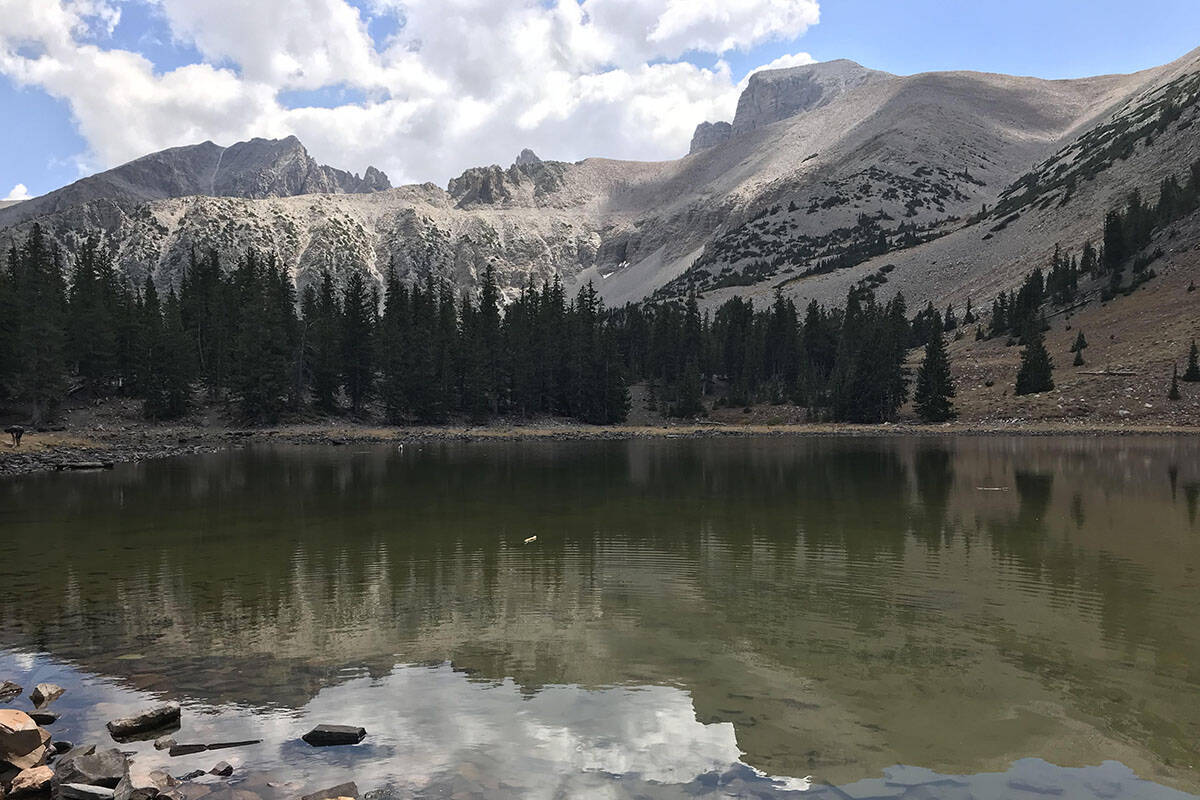NEVADA VIEWS: National park cuts threaten Nevada’s economy
In addition to their natural wonders, Nevada’s national parks and public lands such as Great Basin National Park, Lake Mead National Recreation Area, Red Rock Canyon National Conservation Area, Gold Butte National Monument and Avi Kwa Ame National Monument are all a critical part of our state’s outdoor recreation economy.
In Nevada, outdoor recreation accounts for 8.1 billion in value added GDP annually, making the state 10th in the nation.
Visitors come from all over the world to experience the outdoor spaces that make Nevada and the surrounding areas so special. But the recent cuts to the staff and budget at the National Park Service and the Department of the Interior are already having devasting harm to our parks system and are putting our already fragile economy in even greater danger.
According to National Park Service data, in 2023, 4.6 million park visitors spent more than $239 million in local communities while visiting National Park Service lands in Nevada. This supported more than 2,490 jobs for Nevadans and more than $300 million in economic output.
And we know that millions more visitors use Harry Reid International Airport to access popular parks in nearby states such as Zion in Utah, Joshua Tree in California and the Grand Canyon National Park in Arizona. And on the way to these destinations, they stop in Nevada towns such as Beatty and Mesquite and support Nevada small businesses. Our public lands fuel our economy — it’s that simple.
But parks need staff to run, and the National Park Service has lost 24 percent of its permanent workforce since the start of the Trump administration. Cuts are forcing shortened operating hours, delayed maintenance and even the closure of visitor centers. When a trail is closed, a visitor center is shuttered or a campground goes without upkeep, it doesn’t just inconvenience tourists — it sends them packing. And when they leave, so does their money.
Take Great Basin National Park, for example, in rural northeast Nevada. It’s a haven of quiet beauty, home to ancient bristlecone pines and the only glacier in Nevada. The nearby town of Baker depends heavily on park tourism. According to the U.S. Bureau of Economic Analysis, Nevada is one of the states that relies most heavily on outdoor recreation, making up 3.3 percent of its gross domestic product. Folks in Baker know this firsthand. But when operating hours are cut or ranger programs are eliminated, those tourists could disappear — and so could the local businesses.
This isn’t just a rural issue. Lake Mead National Recreation Area, just outside Las Vegas, is one of the most visited units in the National Park system. It brings in millions of visitors a year and supports thousands of jobs. But with fewer rangers, more trash piles up. With delayed infrastructure repairs, safety becomes a concern. What kind of impression does that leave on families planning their next vacation?
In Nevada, our national parks and public lands are essential. They diversify our economy, and they remind us of who we are: a state defined not just by neon lights but by starry skies, rugged peaks and ancient landscapes.
The truth, and an overlooked aspect of the recent actions by the Trump administration, is that the perfect storm of cutting staff and vital resources is not only a five-alarm fire for our national parks, but also for the economic well-being of communities throughout our state. Because in the end, national parks don’t just protect the land — they protect the livelihoods and identities of the towns that welcome millions to their gates each year.
Investing in our parks isn’t just about preserving nature. It’s about preserving jobs. It’s about protecting our reputation as a destination for adventure, solitude and discovery. And it’s about supporting Nevadans — from tour guides in Ely to hotel staff in Boulder City — who rely on the steady hum of tourism tied to public lands.
Catherine Cortez Masto, a Democrat, represents Nevada in the U.S. Senate. Mark Butler served 38 years for the National Park Service and is a former superintendent of Joshua Tree National Park and a resident of Nevada.

















